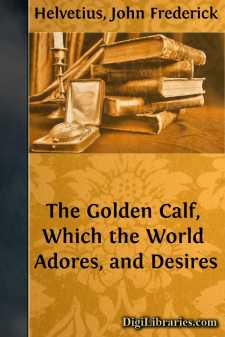Categories
- Antiques & Collectibles 13
- Architecture 36
- Art 48
- Bibles 22
- Biography & Autobiography 815
- Body, Mind & Spirit 144
- Business & Economics 28
- Children's Books 18
- Children's Fiction 14
- Computers 4
- Cooking 94
- Crafts & Hobbies 4
- Drama 346
- Education 58
- Family & Relationships 59
- Fiction 11834
- Games 19
- Gardening 17
- Health & Fitness 34
- History 1378
- House & Home 1
- Humor 147
- Juvenile Fiction 1873
- Juvenile Nonfiction 202
- Language Arts & Disciplines 89
- Law 16
- Literary Collections 686
- Literary Criticism 179
- Mathematics 13
- Medical 41
- Music 40
- Nature 179
- Non-Classifiable 1768
- Performing Arts 7
- Periodicals 1453
- Philosophy 65
- Photography 2
- Poetry 896
- Political Science 203
- Psychology 44
- Reference 154
- Religion 515
- Science 126
- Self-Help 85
- Social Science 83
- Sports & Recreation 34
- Study Aids 3
- Technology & Engineering 59
- Transportation 23
- Travel 463
- True Crime 29
Our website is made possible by displaying online advertisements to our visitors.
Please consider supporting us by disabling your ad blocker.
More Science From an Easy Chair
Description:
Excerpt
CHAPTER I
A DAY IN THE OBERLAND
I am writing in early September from Interlaken, one of the loveliest spots in Europe when blessed with a full blaze of sunlight and only a few high-floating clouds, but absolutely detestable in dull, rainy weather, losing its beauty as the fairy scenes of a theatre do when viewed by dreary daylight. It is the case of the little girl of whom it is recorded that "When she was good she was very good, and when she was not she was horrid." This morning, after four days' misconduct, Interlaken was very good. The tremendous sun-blaze seemed to fill the valleys with a pale blue luminous vapour, cut sharply by the shadows of steep hill-sides. Here and there the smoke of some burning weeds showed up as brightest blue. Far away through the gap formed in the long range of nearer mountains, where the Lütschine Valley opens into the vale of Interlaken, the Jungfrau appeared in full majesty, absolutely brilliant and unearthly. So I walked towards her up the valley. Zweilütschinen is the name given to the spot where the valley divides into two, that to the left leading up to Grindelwald, under the shadow of the Mönch and the Wetterhorn, that to the right bringing one to Lauterbrünnen and the Staubbach waterfall, with the snow-fields of the Tchingel finally closing the way—over which I climbed years ago to Ried in the Loetschen Thal.
The autumn crocus was already up in many of the closely trimmed little meadows, whilst the sweet scent of the late hay-crop spread from the newly cut herbage of others.
At Zweilütschinen, where the white glacier-torrent unites with the black, and the milky stream is nearly as cold as ice, and is boiling along over huge rocks, its banks bordered with pine forest, I came upon a native fishing for trout. He was using a short rod and a weighted line with a small "grub" as bait. He dropped his line into the water close to the steep bank, where some projecting rock or half-sunk boulder staved off the violence of the stream. He had already caught half-a-dozen beautiful, red-spotted fish, which he carried in a wooden tank full of water, with a close-fitting lid to prevent their jumping out. I saw him take a seventh. The largest must have weighed nearly two pounds. It seems almost incredible that fish should inhabit water so cold, so opaque, and so torrential, and should find there any kind of nourishment. They make their way up by keeping close to the bank, and are able, even in that milky current, to perceive and snatch the unfortunate worm or grub which has been washed into the flood and is being hurried along at headlong speed. Only the trout has the courage, strength, and love of nearly freezing water necessary for such a life—no other fish ventures into such conditions. Trout are actually caught in some mountain pools at a height of 8,000 ft., edged by perpetual snow.
You are rarely given trout to eat here in the hotels. A lake fish, called "ferras," a large species of the salmonid genus Coregonus, to which the skelly, powan, and vendayce of British lakes belong, is the commonest fish of the table d'hôte, and not very good. A better one is the perch-pike or zander. It is common in all the larger shallow lakes of Central Europe, and abounds in the "broads" which extend from Potsdam to Hamburg, though it is unknown in the British Isles. It is quite the best of the European fresh-water fish for the table, and there should be no difficulty about introducing it into the Norfolk Broads. It would be worth an effort on the part of the Board of Agriculture and Fisheries to do so, as the perch-pike, unlike other fresh-water fishes, would hold its own on the market against haddock, brill, and plaice. Another interesting fresh-water fish which grows to a large size in the Lake of Geneva (where I have seen it netted) is the burbot—called "lote" in French—a true cod of fresh-water habit which, though common throughout Europe and Northern Asia, is, in our country, only taken in a few rivers opening on the east coast. It is a brilliantly coloured fish, orange-brown, mottled with black, and is very good eating.
Passing up the Lauterbrünnen valley, I came upon some wild raspberries and quantities of the fine, large-flowered sage, Salvia glutinosa, with its yellow flowers, in shape like those of the dead-nettle, but much bigger. They were being visited by humble-bees, and I was able to see the effective mechanism at work by which the bee's body is dusted with the pollen of the flower....












